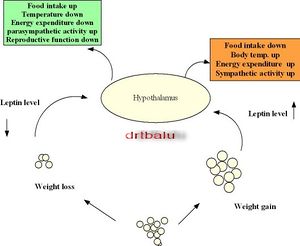Role of Leptin in Nasal Polyposis
Introduction:
The term leptin is derived from the Greek work leptos which means thin. Molecularly speaking it is a 16 kilodalton protein molecule which is playing a key role in regulating energy expenditure which includes appetite and metabolism. This protein molecule is coded by the Ob(Lep) gene located in chromosome 7 in humans.
Leptin was first discovered by Friedmann in 1994. He identified that white adipose tissue is the main source of synthesis of Leptin. He also postulated that leptin could be an important biomarker for body fat. Patients who are fasting or on very low calorie diet have low levels of serum leptin.
Properties of leptin:
1. Circulating levels of leptin is proportional to body fat
2. It enters the CNS in proportion to plasma concentration
3. Receptors are found in brain neurons that regulate metabolism
4. It controls food intake and metabolism by acting on the hypothalamus
5. Leptin is a proinflammatory mediator
7. It is considered to be a member of IL - 6 family of cytokines
It has been shown that leptin stimulates release of proinflammatory cytokines like IL-6, and tumor necrosis factor alpha. Since nasal polyposis is considered to be due to chronic inflammation the role of leptin in their pathogenesis should be studied.
Nasal polyposis is considered to result from local upheaval of nasal mucous membrane. This hyperplasia could be secondary to chronic inflammation.
Studies show that serum leptin levels were significantly high in patients with nasal polyposis. It is suspected that leptin could play a significant role in the pathogenesis of nasal polyp.
